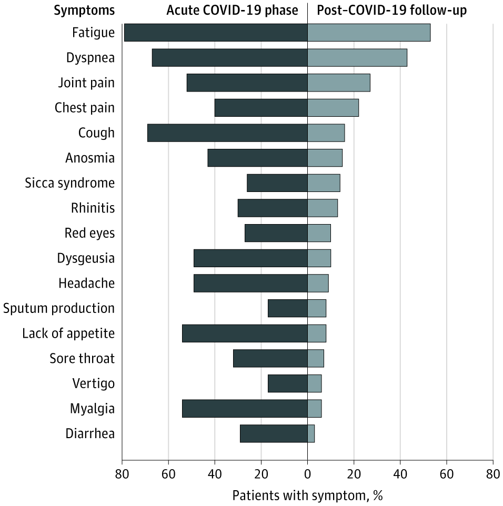New @JAMA_current publication looking at recovered #COVID19 patients in Italy. The outcomes are concerning: a thread. /1
First, should note: these were all hospitalized patients, so those who were very ill. Bias right there: we don& #39;t know as much about those who rode out the illness at home or otherwise had more mild symptoms not requiring hospitalization, so need more data on those folks. /2
Second, the time point examined was ~60 days after onset of symptoms, and patients "were offered a comprehensive medical assessment with detailed history and physical examination." So not only self-report of symptoms; makes it more rigorous & repeatable. /3
The meat of the study: "only 18 (12.6%) were completely free of any COVID-19–related symptom, while 32% had 1 or 2 symptoms and 55% had 3 or more...Worsened quality of life was observed among 44.1% of patients." /4
So as we& #39;ve been saying, we need to look beyond just deaths to determine the true impact of this pandemic. This is just one (smallish) study, but it supports what many others have said, such as this thread... /5 https://twitter.com/aetiology/status/1279243597951500288">https://twitter.com/aetiology...
...and this @edyong209 piece (and others like it) on #COVID19 "long haulers" who continue to suffer from fatigue, brain fog, lung issues, and other symptoms long after the acute phase of the illness resolves. /fin https://www.theatlantic.com/health/archive/2020/06/covid-19-coronavirus-longterm-symptoms-months/612679/">https://www.theatlantic.com/health/ar...
Addendum: this was supposed to be in the first tweet, apologies. Link to the JAMA paper: https://jamanetwork.com/journals/jama/fullarticle/2768351">https://jamanetwork.com/journals/...

 Read on Twitter
Read on Twitter


